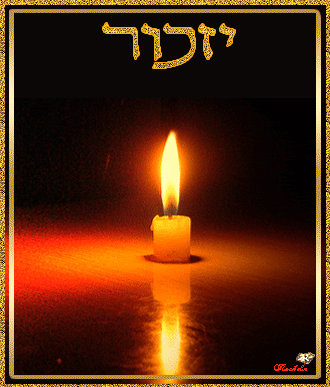 Advocate of Israel's destruction.
Advocate of Israel's destruction.This Israeli traitor is the darling of the campus groups that rally against Israel
By Janet Levy and Dr. Roberta Seid
FrontPageMagazine.com - November 24, 2004
"The most hated Israeli in Israel" - an ignoble moniker to be sure - has not eroded Ilan Pappe's star power on U.S. college campuses, where he is more often than not warmly greeted. The usual contingent of Said acolytes, Chomsky groupies and a panoply of pro-Palestinian student organizations are invariably well-represented in his audiences. The prominence of resolutely anti-Israel partisans is unsurprising, given Pappe's role as one of Israel's most prominent die-hard Marxists. Pappe was invited to UCLA by history professor and fellow Edward Said disciple, Gabriel Piterberg. A call to the university revealed that history department professors may invite speakers at their own discretion using departmental funding to cover expenses for colloquia without any oversight. This practice enables faculty to freely promulgate their political agendas and control the degree to which students are presented with alternative views and critiques. Piterberg has been labeled "an avant-garde radical who harangues campus demonstrations, endorses petitions and teaches a course in post-and anti-Zionism. "
Last spring, as Operation Desert Storm began, he cancelled class to attend an anti-war demonstration. Pappe doesn't seem like someone who would be hated. He comes across as soft-spoken and personable and gives the impression of being an earnest humanist dedicated to a noble cause. Piterberg introduced Pappe with warm praise for his scholarship. But Pappe is a wolf in sheep's clothing. Once he began speaking, it was clear why he's so hated at home. Pappe credits Edward Said with disabusing him of the "addictive" Zionistic leanings of his youth, and for initiating "a painful awakening to the essence of Zionism." Absent from Pappe's discourse is the recognition of Zionism as an authentic movement of national liberation. Pappe refuses to acknowledge the meaning and purposes the modern political phenomenon of Zionism was created to address. These included support for the right of all Jews to live in their ancient homeland; and the Jewish people's national right to self-determination and freedom from oppression.
To this incorrigible anti-Zionist, Palestinian Arabs have been the helpless victims not only of Israel's atrocities but of Israel's very existence as a Jewish state. He asserts that Israel silences those who attack the Zionist mythic narrative, notwithstanding his own somewhat ironic status as a tenured professor at an Israeli university. Not only is Pappe far from silent, he exists in an academic milieu as uninhibited and protective of academic freedom as any in the world. In contrast, the Palestinian Authority imposes strict censorship and ideological conformity on its subservient intellectuals, virtually none of whom support Israel's legitimacy.
For Pappe, Zionism is indistinguishable in practice from "ethnic cleansing." This blanket assertion applies to all aspects of the movement's history, from perfectly legal, mutually agreed upon transfers of land title from Arabs to Jews, to a purportedly long-term Israeli strategy, from the moment the State was born, to expel Palestinian Arabs from Israel.
Pappe fails to note that between 1948 and 1967, no Palestinian national movement wished to establish a state in Judea, Samaria, or Gaza. This fact alone belies the notion that "occupation" is responsible for stimulating Palestinian terror. Arab refusal to accept the Jewish State's right to exist is given no significance in Pappe's selective conclusions.
Pappe re-circulates the ludicrous postulate that Israel's offer at Camp David constituted an effort to ethnically cleanse the so-called Occupied Territories by creating "two Bantustans" or "prison camps." In fact, as confirmed as recently as a few weeks ago by Ambassador Dennis Ross, the proposed Palestinian state was to include nearly the entire West Bank, all of Gaza, and portions of East Jerusalem, which was to have become the Palestinian Arab capital. The consistent testimony of all parties privy to the Camp David negotiations, is that this Palestinian Arab state would have enjoyed territorial contiguity, and would have had a viable and substantial land mass in which to achieve the _expression of its sovereignty. Yet Pappe continues to cast darkness on what is an un-shadowed field of clarity and light.
Such baseless charges are Pappe's stock in trade. Before the Coalition imposed regime change in Iraq, Pappe circulated a tendentious, inflammatory petition, warning that Israel intended to use the "fog of war" to commit further atrocities against Palestinian Arabs in the disputed territories. Following the advent of the second Intifada, Pappe refused to condemn terrorism and explained it as a legitimate response to "occupation." "Terrorism is not the essential question," Pappe said. "Israel expelled the Palestinians and colonized the area," acts "far worse than suicide bombing and armed struggle."
It bears repeating in this context that the Palestinian Liberation Movement was founded in 1964, years before the "occupation." The following year, an Egyptian, Yassir Arafat, launched al-Fatah, which soon became the leading operational and controlling faction of the PLO. The goal of this organization, as of the entire Palestinian national movement, was never the establishment of a new Arab state, but the destruction of the established Jewish state.
Pappe's scholarship is questionable and subject to much criticism by respected historians. He dismisses the legitimacy of historical facts and rewrites history to support his ideologically determined agenda. He has admitted to the predominance of the Marxist worldview in defining conclusions and outcomes, by asserting that "we do [historiography] because of ideological reasons, not because we are truth seekers."
Pappe routinely and purposefully discredits or ignores sources that contradict his anti-Zionist views, and when challenged by students who cite accepted historical narratives, criticizes them for reading "the wrong books." When confronted by the actual, benign text of an Israeli military doctrine, which contradicted Pappe's thesis that such documents called for the expulsion of Palestinian Arabs, he admitted that no such doctrinal statement actually existed, but was implied simply by the existence and concomitant predispositions of Zionism.
Notwithstanding a negative court finding, and a scholarly review debunking the veracity of a master's thesis of one of Pappe's students, claiming an IDF massacre at Tantura, Pappe continued to support the claim. Upon reviewing Pappe's latest book, historian Benny Morris warned: "Anyone interested in the real history of Palestine/Israel and the Palestinian/Israel conflict would do well to run vigorously in the opposite direction!" This book is awash with errors of quantity and quality that are not found in serious historiography." Pappe admits that most historians share Morris' views and again freely admits that his "ideology influences his historical writing."
As part of his UCLA presentation, Pappe purported to expose an ideological paradox between the external presentation of Israeli society and what he perceives to be its reality. Pappe maintains that Israel is inaccurately viewed as a country torn between "peace camp" and "settler camp" ideologies. He sternly cautions against such an interpretation of the current discourse within Israel. Pappe instead advances the view that there is no authentic or meaningful debate, crisis or strife within Israeli society today. "This is the most consensual phase in Israeli history," he states.
Pappe blames this development on the rise to power of Classical Zionists, including Prime Minister Sharon, who believe in responsibly balancing the imperatives of democracy with the survival and security requirements of a Jewish state. Pappe bemoans the decline of the post-Zionists, and the diminishing resonance within Israel of their critique of Zionism. He claims that the newly invigorated national pride of Israel is wrongly "dictating the peace agenda to the world."
Pappe concluded his UCLA lecture by calling for a "political and geographical structure to contain Israel" and the imposition of economic sanctions on Israel, in the spirit of the boycott against apartheid South Africa. He called for activists to pressure the international community to pressure Israel in turn. He also advocated the imposition of an international force in the West Bank to protect Palestinians.
Pappe emphasized the need to convince others to abandon the idea of a two-state solution which he deems not viable. He called instead for the creation of one political structure to best serve the interests of Palestinians and Israelis. This recipe for a "multinational democratic state" conforms precisely to the formula long held by the PLO, and of course would result in the immediate and complete destruction of the Jewish State of Israel.
Pappe excoriated the American media for its ostensibly pro-Israel bias, and observed, no doubt correctly, that "Palestinians get a better hearing in Europe." He memorialized Edward Said by recommending acceptance of Said's Principle of the Three "A's: Acknowledgment by Israel of the ethnic cleansing of 1948; Accountability by Israel, to include repatriation or compensation to the Palestinian Arabs; and Acceptance by the Palestinians of a "Jewish element" in their midst.
It is noteworthy that, during the question and answer period following his lecture, Pappe entertained queries mostly from students of Arab appearance. Participants with dissenting opinions were cut off and subjected to terse answers. Those who agreed with Pappe's views were afforded ample time to complete their comments, and were granted gracious, respectful, and lengthy responses.
Clearly, so long as Pappe is supported by an American professoriate that shares his views, he will continue to propagate those views on American campuses. Students should take the advice of Benny Morris, and run the other way. His lectures serve only as object-lessons of the degree to which facts can be distorted to support an ideology. Any serious examination of the true history of the Middle East, or consideration of how desperately Israelis want peace and have repeatedly offered concessions toward that elusive goal, will always be absent from Pappe's discourse. Little else but distortion and falsehoods should be expected from an advocate of Israel's destruction.
You Might Also Like to Read:
More About Ilan Pappe






No comments:
Post a Comment